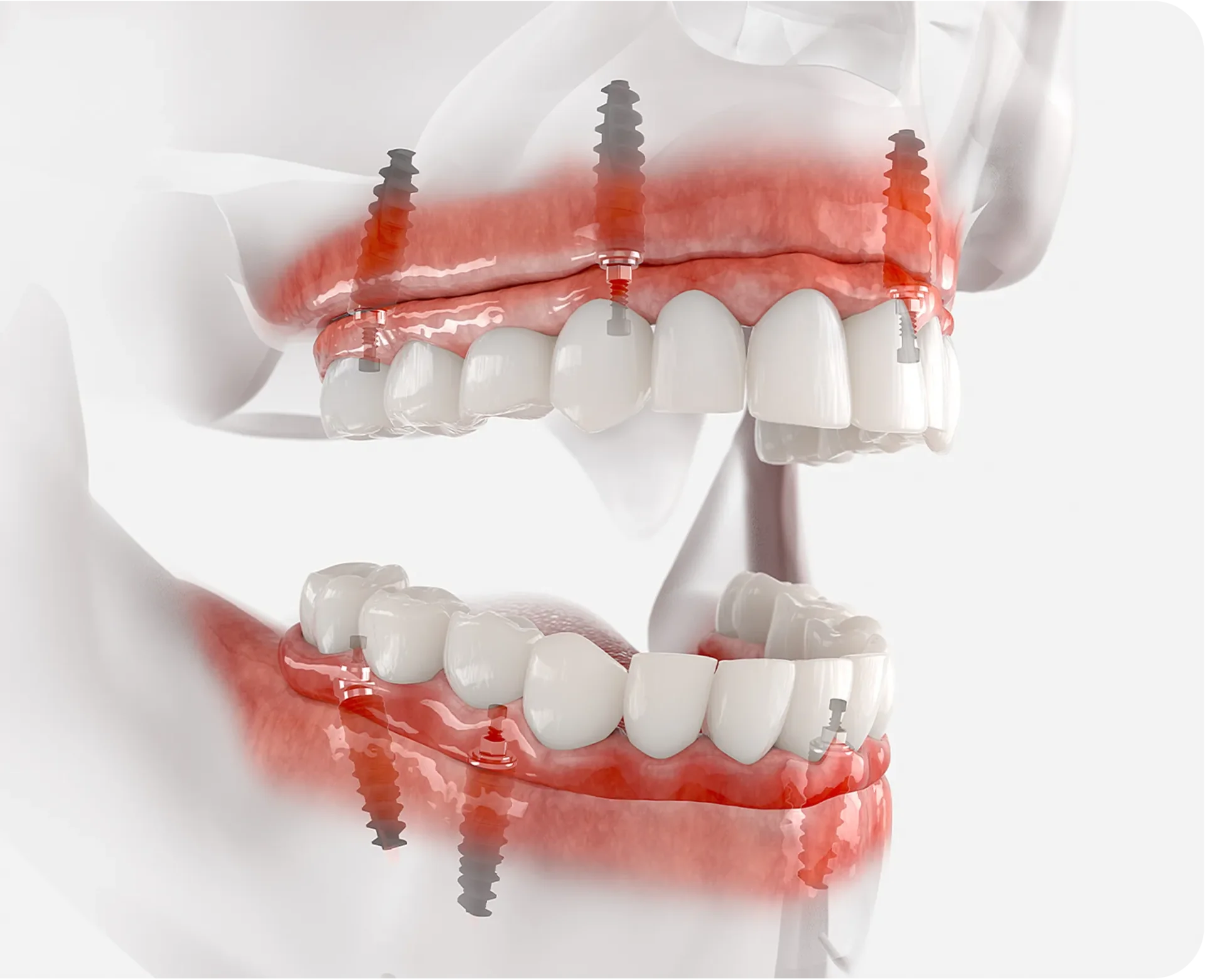Dental Implants vs Root Canal Treatment

Choosing between dental implants and root canal treatment depends on the condition of your teeth and the problem that is occurring with them. Both methods are primarily intended to treat damaged teeth, but they differ in terms of the procedure and the results they produce.
Dental Implant
Dental implants are an option for replacing missing teeth. They are made of a strong material, such as titanium, that is implanted into the jawbone, which acts like a real tooth root.
Advantages of dental implants
1. Permanently replace lost teeth.
Dental implants are ideal for replacing missing teeth, providing long-lasting, durable results.
2. Maintain jawbone
When teeth are lost, the jawbone often loses bone mass in the areas where the teeth are not. Dental implants help stimulate the growth of the jawbone and help maintain a strong bone structure.
3. Functionality and appearance like natural teeth.
Dental implants and crowns on dental implants look and function like natural teeth, allowing you to chew food and speak normally.
4. No need to grind adjacent teeth.
Unlike a bridge that requires grinding of adjacent teeth, dental implants do not require grinding of adjacent teeth at all.
Limitations of dental implants
1. High cost
Dental implants are quite expensive because the implant placement process is time-consuming and involves surgery.
2. Long treatment process
The dental implant process takes several months for the implant to attach to the bone (osseointegration), which may require multiple steps.
3. Must have good jaw bone health.
If the patient has lost a lot of jawbone, bone augmentation may be required before dental implants are placed.
Root Canal Treatment
Root canal treatment is a procedure that treats a tooth that has an infection in the root. The procedure involves removing the infected tissue from the root, cleaning it, and filling it with a special material to seal the root and preserve the natural tooth in the mouth.
Advantages of Root Canal Treatment
1. Maintain the original teeth.
Root canal treatment allows the original tooth that is still in your mouth to be used again, which is a way to save your tooth that you may not need to replace.
2. Maintain the teeth in the mouth.
Root canal treatment allows you to save an infected tooth and prevent the tooth from needing to be extracted.
3. Fast healing process
Root canal treatment takes less time and is not as surgical as dental implants and can be completed in 1-2 visits (depending on the complexity).
4. Cheaper than dental implants.
In the past, root canal treatment was much cheaper than dental implants, but today, the difference is not that great.
Limitations of root canal treatment
1. Cannot chew hard foods.
Root canal treated teeth may not be as strong as natural teeth and may be more susceptible to cracking or breaking if subjected to excessive force.
2. Limited lifespan
A root canal treated tooth may have a limited lifespan and may need to be treated or extracted in the future if a problem arises again.
3. Does not help maintain the jawbone.
Root canal treatment does not stimulate jawbone healing like dental implants do. If a tooth is lost, bone mass may be lost.
4. Re-infection may occur.
Although root canal treatment can save a tooth from infection, in some cases, a new infection can occur.
Comparison between dental implants and root canal treatment
| Feature | Dental Implants | Root Canal Treatment |
| Usage | Permanently replace missing teeth | Treat existing teeth with root problems |
| Jawbone treatment | Helps maintain jawbone |
Does not help preserve the jawbone |
| Treatment process | It takes time and surgery. | It takes less time and does not require surgery. |
| Service life | Long-lasting (10 - 20 years or more) | Limited lifetime (may need to be maintained or withdrawn in the future) |
| Durability | Highly durable and can be chewed normally | May not be as durable as natural teeth |
| Expenses | High (depending on the brand chosen) | Lower than |
| Treatment of adjacent teeth | No need to grind adjacent teeth | Adjacent teeth must be ground down (in the case of a dental bridge). |
| Maintenance | Take care like natural teeth | Teeth with root canal treatment must be well cared for. |
Summarize
- Dental implants are the best option for those who have lost teeth and want a permanent replacement. They are fixed to the jawbone, helping to preserve the jawbone and are durable.
- Root canal treatment is suitable for teeth with infection or damage at the root, but the original tooth can still be preserved. If the tooth is restored and well treated, it can be used for a certain period of time.
- Choosing the best treatment method should be done in consultation with a dentist, who will consider the condition of the patient's teeth, jawbone, and individual needs.


